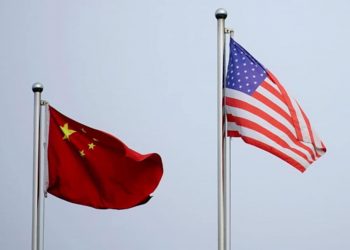The Guardian, The man leading the US hunt for Iraqi weapons of mass destruction will leave his post prematurely in the next few months amid dwindling expectations that there is anything to be found.
David Kay, a former UN weapons inspector appointed by the CIA to head the Iraq Survey Group (ISG) to hunt for the suspected arsenal that was the US and British justification for the war, is on holiday in the US and might leave before the ISG's next interim report is due in February, according to a report yesterday in the Washington Post.
One former UN colleague said Mr Kay was under pressure to leave from his wife, who was nervous about his safety. He had expected the search to have brought results much quicker and had predicted he would be back in the US by Christmas.
Another former colleague however, said Mr Kay was frustrated at the haemorrhage of personnel and resources from the ISG to the counter-insurgency effort in Iraq. A significant proportion of the group's Arabic translators have been diverted to interrogating suspected guerrillas, leaving the ISG unable to interview officials and scientists who might have knowledge of Saddam Hussein's programmes.
“This is a big blow to the administration and it will signal the effective end of the search for weapons of mass destruction,” said Joseph Cirincione, a weapons expert at the Carnegie Endowment Institute for Peace in Washington. “Some will continue looking but very, very few expect there to be any significant finds at this point.”
A Pentagon official said he could not confirm Mr Kay's departure but said that even if he left, the search for weapons programmes would continue.
But the White House has not mentioned weapons of mass destruction as a justification for the war in recent months, stressing the removal of Sad dam instead. In a television interview this week, President George Bush appeared to deny there was a distinction between his pre-war claims that Saddam had an arsenal of non-conventional weapons, and his administration's current argument that the regime was planning to restart its weapons programmes.
When an interviewer for ABC television, Diane Sawyer, reminded him of claims of the “hard fact that there were weapons of mass destruction, as opposed to the possibility that he could move to acquire those weapons”, Mr Bush asked: “What's the difference?”
He added: “If he were to acquire weapons, he would be the danger.”
Asked what it would take to convince him that Saddam did not have weapons of mass destruction, the president said: “Saddam Hussein was a threat. The fact that he is gone means America is a safer country.”
“It's unbelievable to me,” David Albright, another former UN inspector and a Washington expert on nuclear arms.
“He can't possibly have meant it. Because it means we can hit you if we don't like you.
“The administration is redefining its meaning of having stockpiles of weapons of mass destruction to thinking about acquiring large stockpiles. His claims that there is no difference is disingenuous. But they're sticking with that position – that black is white.”
Mr Kay's first preliminary report to congress in October conceded the ISG had found only plans to acquire chemical and biological weapon.
Donald Rumsfeld, the US defence secretary, has continued to insist that weapons will be found, pointing out that quantities could be hidden in tiny bunkers around the country the same size as the pit where Saddam was found.








